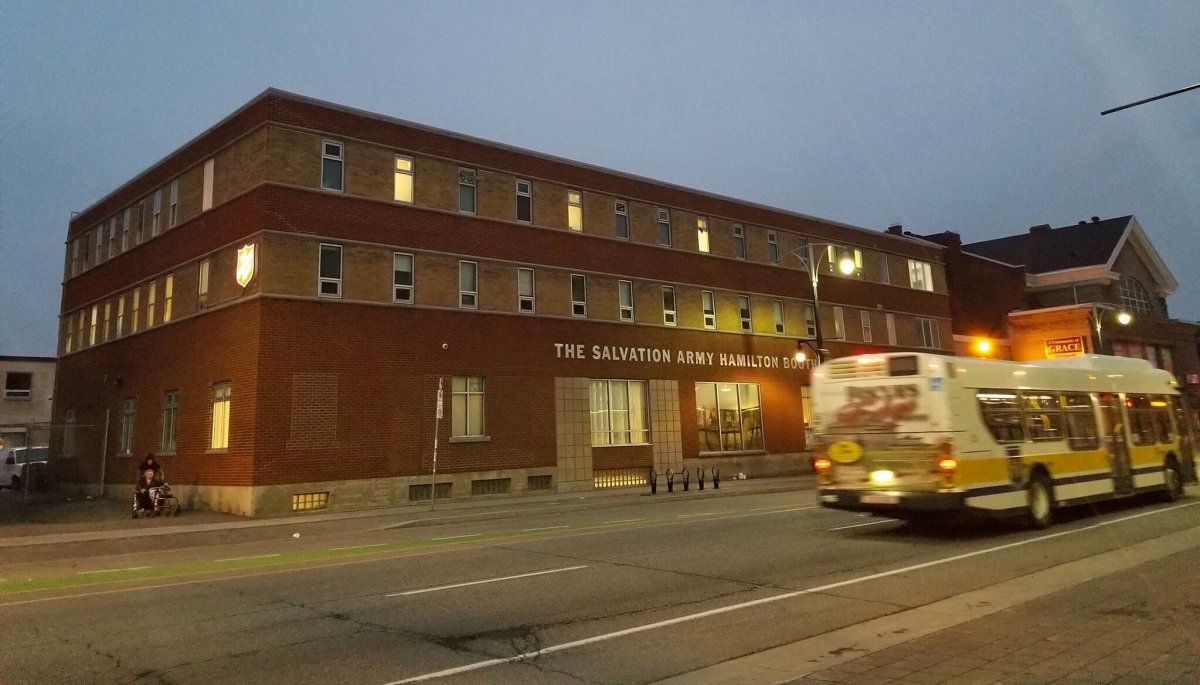Three isolation sites have been established in Hamilton to help the city’s most vulnerable residents who show symptoms of COVID-19.

The three sites, which are all based at recreation centres in the lower city, will separately serve men, women and families who are homeless or in precarious housing situations.
Paul Johnson, general manager of healthy and safe communities and the director of Hamilton’s emergency operations centre, said the three new sites are being set up to support the existing shelter system, which was struggling to find room to isolate anyone who might have symptoms of the virus.
“Each site will provide emergency shelter and essential provisions for individuals and families that have been assessed and require isolation,” said Johnson.
The city is not disclosing the location of those isolation sites, which will only be accessible by referral through the existing shelter network.
“We want to make sure that our emergency shelter system is there for those who are well, and continue to provide services to those who are homeless.”
It’s a step that medical professionals say is crucial to protecting those who are homeless or in precarious housing, as the recommendation to practice social distancing or self-isolation is impossible for people living in shelters.
“There’s not really such a thing as a private room … in a shelter, so our concern, of course, was that an infection would spread like wildfire amongst our individuals,” said Dr. Kerry Beal, the lead physician for the Shelter Health Network.
Now that Hamilton has seen at least one case of COVID-19 that was contracted through community spread, Beal said she hopes this means there will be more rigorous testing of people who are symptomatic.
“We have been pushing to have all our guys that have symptoms tested, regardless of whether or not there was any travel history, whether or not there was any connection with someone with a known case,” Beal said, “just because we can’t afford to have this happen in the shelter system.
“It would appear that, with the onset of community spread, we now have a good reason to say, ‘You know what, if they’ve got symptoms, we’ve got to test them so we know whether or not we need to isolate them’.”
The other issue, Beal said, is how to keep health care workers on the front line from getting infected.
“Our staff in the shelters are terrified. They’re absolutely terrified. Because day to day, they don’t know how to protect themselves.”
Health care workers in Canada have been concerned about a shortage of personal protective equipment (PPE), and Beal said locally, it’s been no exception. Their team placed an order two weeks ago, which still hasn’t arrived.
Among the supplies that are in high demand are swabs for testing those with symptoms to see if they have the virus, so any action to ramp up testing would rely on the equipment supply issue being resolved.
“Things are in flux, and hopefully that will improve,” said Beal.
“We’ve put together a nice little pile of stuff, so we’re hoping that we can protect our guys who are actually going to be front line. Until it runs out. And hopefully by the time it runs out, there will be more equipment showing up.”
The city is also working to ease the burden on the shelter network by increasing or extending service at some drop-in facilities, including the Wesley Day Centre, which will continue to operate out of its Ferguson Avenue North location for an extended three-month period.
The day centre was slated to close at the end of the month but its lease has been extended until the end of June.







Comments